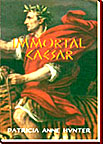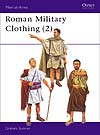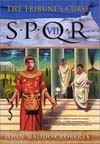 Heracles Pontor, Decipherer of Enigmas, is called upon to solve the grisly killings of young men at Platos Academy of Philosophy. Athenian tutor Diagoras, a sort of Watson to Pontors Holmes, comes to ask the sages help after the corpse of a handsome ephebe (adolescent) is discovered. It is thought at first that he was attacked by wolves, but neither of the ancient sleuths accepts this explanation, and their investigations lead to interviews with family members, mistresses and schoolmates of a mounting number of victims. Insidiously, the translator himself becomes a murder target in the unfolding plot. As he looks for secret messages in the story (left in accordance with a Greek literary technique called eidesis), he begins to notice inexplicable allusions to himself in the text: Someone is reading the scroll right now, deciphering our thoughts and actions. Such references become more threatening near the suspenseful buildup to the final chapter, especially when he identifies a statue of himself in the studio of a rapacious sculptor rumored to be part of a sacrificial cult terrifying the city.
Heracles Pontor, Decipherer of Enigmas, is called upon to solve the grisly killings of young men at Platos Academy of Philosophy. Athenian tutor Diagoras, a sort of Watson to Pontors Holmes, comes to ask the sages help after the corpse of a handsome ephebe (adolescent) is discovered. It is thought at first that he was attacked by wolves, but neither of the ancient sleuths accepts this explanation, and their investigations lead to interviews with family members, mistresses and schoolmates of a mounting number of victims. Insidiously, the translator himself becomes a murder target in the unfolding plot. As he looks for secret messages in the story (left in accordance with a Greek literary technique called eidesis), he begins to notice inexplicable allusions to himself in the text: Someone is reading the scroll right now, deciphering our thoughts and actions. Such references become more threatening near the suspenseful buildup to the final chapter, especially when he identifies a statue of himself in the studio of a rapacious sculptor rumored to be part of a sacrificial cult terrifying the city.
Subsection of Roman Times:
My personal book reviews and news about upcoming books and novels set in the ancient world.
Thursday, March 27, 2003
The Athenian Murders by Jose Carlos Somoza
 Heracles Pontor, Decipherer of Enigmas, is called upon to solve the grisly killings of young men at Platos Academy of Philosophy. Athenian tutor Diagoras, a sort of Watson to Pontors Holmes, comes to ask the sages help after the corpse of a handsome ephebe (adolescent) is discovered. It is thought at first that he was attacked by wolves, but neither of the ancient sleuths accepts this explanation, and their investigations lead to interviews with family members, mistresses and schoolmates of a mounting number of victims. Insidiously, the translator himself becomes a murder target in the unfolding plot. As he looks for secret messages in the story (left in accordance with a Greek literary technique called eidesis), he begins to notice inexplicable allusions to himself in the text: Someone is reading the scroll right now, deciphering our thoughts and actions. Such references become more threatening near the suspenseful buildup to the final chapter, especially when he identifies a statue of himself in the studio of a rapacious sculptor rumored to be part of a sacrificial cult terrifying the city.
Heracles Pontor, Decipherer of Enigmas, is called upon to solve the grisly killings of young men at Platos Academy of Philosophy. Athenian tutor Diagoras, a sort of Watson to Pontors Holmes, comes to ask the sages help after the corpse of a handsome ephebe (adolescent) is discovered. It is thought at first that he was attacked by wolves, but neither of the ancient sleuths accepts this explanation, and their investigations lead to interviews with family members, mistresses and schoolmates of a mounting number of victims. Insidiously, the translator himself becomes a murder target in the unfolding plot. As he looks for secret messages in the story (left in accordance with a Greek literary technique called eidesis), he begins to notice inexplicable allusions to himself in the text: Someone is reading the scroll right now, deciphering our thoughts and actions. Such references become more threatening near the suspenseful buildup to the final chapter, especially when he identifies a statue of himself in the studio of a rapacious sculptor rumored to be part of a sacrificial cult terrifying the city.
Monday, March 24, 2003
Vesuvius A.D.79: the End of Pompeii & Herculaneum
 This is an account of the seismic and volcanic activity leading up to the eruption of Vesuvius, as well as a detailed description of the event itself and its aftermath. The authors rely on a wide range of scientific, artistic and literary sources, including the gripping eyewitness account of Pliny the Younger, whose eminent uncle died from exposure to toxic gases while trying to help victims evacuate. The authors close with stories and legends of this ancient catastrophe, which continues to fascinate scholars and non-experts to this day. (Scheduled for May 2003 release)
This is an account of the seismic and volcanic activity leading up to the eruption of Vesuvius, as well as a detailed description of the event itself and its aftermath. The authors rely on a wide range of scientific, artistic and literary sources, including the gripping eyewitness account of Pliny the Younger, whose eminent uncle died from exposure to toxic gases while trying to help victims evacuate. The authors close with stories and legends of this ancient catastrophe, which continues to fascinate scholars and non-experts to this day. (Scheduled for May 2003 release)
Friday, March 21, 2003
The Eagles Conquest: A Novel
 by Simon Scarrow
by Simon Scarrow
Centurion Macro and his eager young subordinate, Optio Cato try to outmaneuver the forces of Caratacus, king of the Celtic tribes of Britain, in a series of skirmishes along the Thames. In the process, Macro and Cato must get to the bottom of a plot involving fellow soldier Vitellius, a Carthaginian surgeon and Flavia Lavinia, a former romantic interest of Catos.
Ancient Hellenistic and Roman Amphitheatres, Stadiums, and Theatres: The Way They Look Now
by Ramond G. Chase
A full-color directory and guide containing over 2,000 photographs and maps of 830 theatres, amphitheatres and stadiums extant in the Mediterranean world.
A full-color directory and guide containing over 2,000 photographs and maps of 830 theatres, amphitheatres and stadiums extant in the Mediterranean world.
Thursday, March 20, 2003
Late Roman Warlords by Penny McGeorge
Late Roman Warlords reconstructs the lives of some of the men who shaped events in the final controversial years of the Western Roman Empire during the fifth century AD. Ranging from the Balkans and Italy to northern France, this study uses a wide range of historical evidence, folklore, letters, poems, sermons, archaeology, and coins. Recent historical theories are discussed and new interpretations offered, including how these warlords may throw light on post-Roman Britain.
Galen: My Life in Imperial Rome by Marissa Moss
A clear, intriguing portrait of ancient Roman life, with such customs as gladiator fights, chariot races and celebrations of the Saturnalia and the feast of Liberalia. Moss marginal notes in Galens engaging voice plus his sketches offer insight about food, dress ("Togas are impossible to drape by yourself") and hairstyles. Moss caps this account with Galens climactic discovery of a plot to poison Augustus so that Iullus Antonius can become emperor. Written for ages 8-12.
Monday, March 17, 2003
A.D. 62 Pompeii
 Stranded in first century Pompeii when a time travel experiment goes awry and sold to a wealthy family as a house slave, a young woman from the 21st century uses fairy tales and great works of literature to argue for womens rights and the humanity of slaves, and to inspire herself and others to be resourceful, courageous and independent in the 1st century Roman Empire.
Stranded in first century Pompeii when a time travel experiment goes awry and sold to a wealthy family as a house slave, a young woman from the 21st century uses fairy tales and great works of literature to argue for womens rights and the humanity of slaves, and to inspire herself and others to be resourceful, courageous and independent in the 1st century Roman Empire.
Companion website: http://www.rebecca-east.com/
Friday, March 14, 2003
Murder Imperial by Paul C. Doherty due out in April
 At the dawn of the 4th century, the Roman empire is in trouble. In order to consolidate his power and the empire, Emperor Constantine plans to harness the power of the increasingly influential Christian Church. But a series of murders brings loyalties into question and a spy is needed.
At the dawn of the 4th century, the Roman empire is in trouble. In order to consolidate his power and the empire, Emperor Constantine plans to harness the power of the increasingly influential Christian Church. But a series of murders brings loyalties into question and a spy is needed.
Tuesday, March 11, 2003
Immortal Caesar
 The story of GAIUS JULIUS CAESAR. A multiple genius whom Shakespeare called "the noblest man that ever lived in the tide of times", he was warrior, politician, author, explorer and lover. Meet the people who shared his tempestuous times and shaped our own world--Pompey, unable to tolerate a rival; vengeful Cassius; Cicero, the great orator; Servilia, the mother of Brutus; the beautiful and tragic Calpurnia; and Cleopatra, prepared to barter her body for the throne of Egypt...
The story of GAIUS JULIUS CAESAR. A multiple genius whom Shakespeare called "the noblest man that ever lived in the tide of times", he was warrior, politician, author, explorer and lover. Meet the people who shared his tempestuous times and shaped our own world--Pompey, unable to tolerate a rival; vengeful Cassius; Cicero, the great orator; Servilia, the mother of Brutus; the beautiful and tragic Calpurnia; and Cleopatra, prepared to barter her body for the throne of Egypt...
Monday, March 10, 2003
Boudica: Dreaming The Eagle
 It is 33 AD and eleven-year-old Breaca (later named Boudica), the red-haired daughter of one of the leaders of the Eceni tribe, is on the cusp between girl and womanhood. She longs to be a Dreamer, a mystical leader who can foretell the future, but having killed the man who has attacked and killed her mother, she has proven herself a warrior. Dreaming The Eagle is the first installment in a new trilogy by Manda Scott.
It is 33 AD and eleven-year-old Breaca (later named Boudica), the red-haired daughter of one of the leaders of the Eceni tribe, is on the cusp between girl and womanhood. She longs to be a Dreamer, a mystical leader who can foretell the future, but having killed the man who has attacked and killed her mother, she has proven herself a warrior. Dreaming The Eagle is the first installment in a new trilogy by Manda Scott.
A Vote For Murder
 A new Marcus Corvinus mystery from David Wishart. Corvinus must investigate the murder of a candidate for consul and in the process uncovers a national conspiracy. In the course of his investigations, he meets the dead mans fiancee, a shady property developer, an ex-war hero, the younger son of a wealthy family who is pursuing a career as an artist and assorted low lifes. He also narrowly misses death thanks to his intellectual wife, Perilla.
A new Marcus Corvinus mystery from David Wishart. Corvinus must investigate the murder of a candidate for consul and in the process uncovers a national conspiracy. In the course of his investigations, he meets the dead mans fiancee, a shady property developer, an ex-war hero, the younger son of a wealthy family who is pursuing a career as an artist and assorted low lifes. He also narrowly misses death thanks to his intellectual wife, Perilla.
Friday, March 07, 2003
Roman Military Clothing (2) By Graham Sumner
 The armour and weapons of the Roman army have long been the subject of intense research and speculation. While much has been published on their arms and armour, however, the actual clothing of Imperial soldiers has largely been overlooked. In this second part of a rigorous study of the literary, sculptural, pictorial and archaeological evidence, the specialist author-artist examines the clues which enable us to attempt reconstructions of tunics, cloaks, trousers and other items worn by officers and men all over the empire during the two centuries between the reign of Septimius Severus and the twilight years of Stilicho.
The armour and weapons of the Roman army have long been the subject of intense research and speculation. While much has been published on their arms and armour, however, the actual clothing of Imperial soldiers has largely been overlooked. In this second part of a rigorous study of the literary, sculptural, pictorial and archaeological evidence, the specialist author-artist examines the clues which enable us to attempt reconstructions of tunics, cloaks, trousers and other items worn by officers and men all over the empire during the two centuries between the reign of Septimius Severus and the twilight years of Stilicho.
The Songs of the Kings
 The setting is Aulis in 1260 B.C., where unfavorable winds are keeping the fleet of the Greek expeditionary force (actually a motley assemblage of hostile and predatory tribes loosely united under Agamemnon) from setting out to capture Troy. The pretext is revenge for the "rape" of Helen by Paris, but Agamemnon and such tribal leaders as Achilles and Odysseus are, in fact, lusting for the fabled treasures of Troy, spoils of war that each man, down to the most common soldier, yearns to possess.
The setting is Aulis in 1260 B.C., where unfavorable winds are keeping the fleet of the Greek expeditionary force (actually a motley assemblage of hostile and predatory tribes loosely united under Agamemnon) from setting out to capture Troy. The pretext is revenge for the "rape" of Helen by Paris, but Agamemnon and such tribal leaders as Achilles and Odysseus are, in fact, lusting for the fabled treasures of Troy, spoils of war that each man, down to the most common soldier, yearns to possess.
SPQR VIII-The Tribunes Curse
 Decius Caecilius Metellus has left service in Gaul with his uncle (by marriage), Julius Caesar, and returned home to Rome. As a candidate for the office of aedile, he's busy cultivating voters by paying for expensive games and contests. The murder of the tribune Ateius, after he publicly places a dreadful curse on consul Crassus and his army, stirs up civil unrest. The consul Pompey charges Decius with finding the tribune's killer before the mobs burn the city.
Decius Caecilius Metellus has left service in Gaul with his uncle (by marriage), Julius Caesar, and returned home to Rome. As a candidate for the office of aedile, he's busy cultivating voters by paying for expensive games and contests. The murder of the tribune Ateius, after he publicly places a dreadful curse on consul Crassus and his army, stirs up civil unrest. The consul Pompey charges Decius with finding the tribune's killer before the mobs burn the city.
Emperor The Gates Of Rome
 Gaius, the broody son of a wealthy senator, and Marcus, a prostitute's mischievous child who is reared as Gaius's brother and trained with him in the arts of war are thrust into adulthood by the untimely death of Gaius's father and take up residence in Rome with Gaius's uncle Marius, a powerful consul who is vying with Sulla for control of the Republic.
Gaius, the broody son of a wealthy senator, and Marcus, a prostitute's mischievous child who is reared as Gaius's brother and trained with him in the arts of war are thrust into adulthood by the untimely death of Gaius's father and take up residence in Rome with Gaius's uncle Marius, a powerful consul who is vying with Sulla for control of the Republic.
Subscribe to:
Posts (Atom)